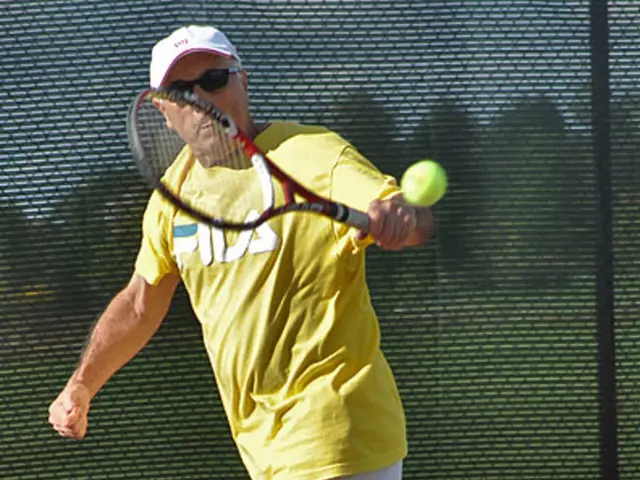Angry Criticism Leads Culinary Professional at French Open to Hand
The French Open is once again embroiled in a contentious debate over the scheduling of women's matches. Criticism of the scheduling, particularly for evening matches, has sparked discontent among players and officials, culminating in the resignation of French Open Director Amélie Mauresmo.
In a press conference in Paris, Mauresmo expressed frustration with the recurring discussions regarding the scheduling of popular evening matches. "Every year, it's the same questions," the former world-class player said.
Since the introduction of night sessions at Stade Roland Garros four years ago, there has been consistent debate over the scarcity of women's matches in the evening slots. Since 2021, there have been 47 matches on Court Philippe-Chatrier in the evening, with only four being women's matches.
Critics have come forward consistently over the years. This time, Tunisian player Ons Jabeur led the charge, heavily criticizing the scheduling. "I don't believe the person who makes this decision has daughters," Jabeur said, implying that the scheduler would not subject their own daughters to such treatment.
Mauresmo primarily defended the decision based on the shorter format of women's matches, which could end too quickly, failing to provide spectators with enough tennis for their expensive tickets.
Mauresmo's suggestions for change were met with rejection. She suggested scheduling both a women's and a men's match in the evening and starting the night session earlier, but cited the TV contract with Amazon Prime in France, which only allows one match at prime time. The streaming service has a significant influence on the scheduling and is primarily focused on men's tennis, with promotional materials featuring only male tennis professionals.
Mauresmo also rejected the idea of an earlier start and two matches, a practice common at the Australian Open and US Open, citing French spectators' later arrival at the stadium after work and dinner. When faced with accusations of sidelining women's tennis or neglecting female players, Mauresmo shrugged nonchalantly.
The controversy has escalated publicly, raising questions about gender equality in tennis scheduling. It has sparked debates within the tennis community about how to promote women's matches more effectively at Grand Slam events like the French Open. The impact on the tournament includes increased media scrutiny and calls for greater gender equality in tennis events.
[Source: ntv.de, dpa]
[Sports] [French Open]
- In light of the controversy, discussions within the tennis community have amplified, focusing on more effective promotion of women's matches at Grand Slam events such as the French Open, as part of the broader [health-and-wellness] and [women's health] concerns.
- The French Open's scheduling debacle has drawn attention to the scientific aspect of [sports], questioning the fairness of the scheduling system, particularly in terms of gender equality.
- As the debate over the French Open's scheduling of women's matches continues, it raises questions about the priority given to [tennis], with media attention predominantly centered on men's tennis, as seen in the promotional materials of streaming services like Amazon Prime.








